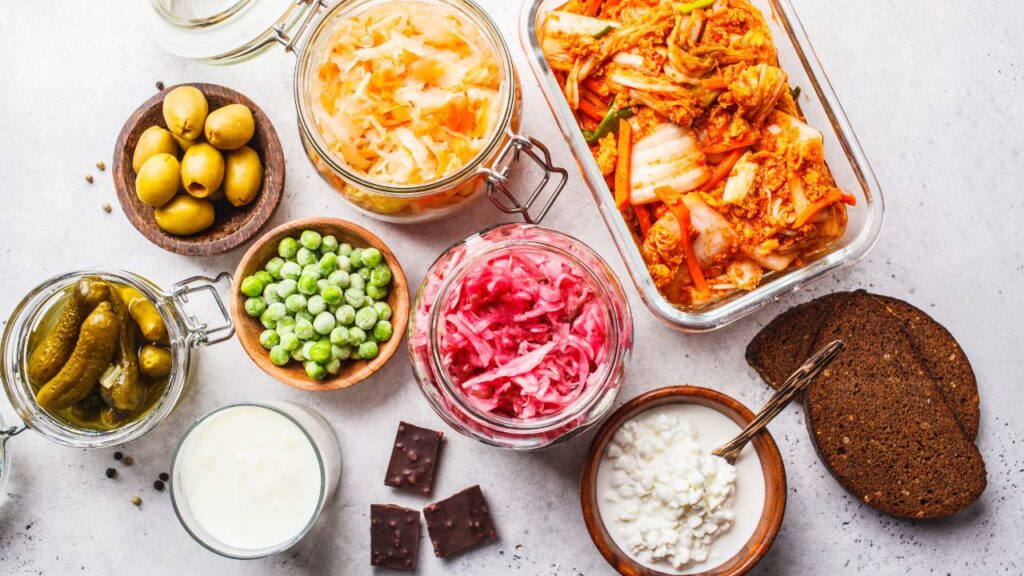50 Powerful Resolutions to Help #WomenOver40 Feel Stronger, Healthier, and More in Control in 2026
Perimenopause and menopause aren’t just chapters in your life — they’re a whole new era of strength, growth, and self-discovery. While the hot flashes, mood swings, and brain fog might try to steal the spotlight, the truth is, this season can be one of the most powerful and transformative of your life.
The key? Taking back control.
These 50 powerful resolutions are designed to help you do exactly that. They’re not just random “good ideas” — they’re tried-and-true strategies that real women have used to feel stronger, healthier, and more confident through every stage of this hormonal transition. From boosting self-care and fitness to deepening relationships, revamping your career, and protecting your mental well-being, these resolutions address every aspect of your life.
No unrealistic goals. No perfection required. Just practical, simple steps that make a big impact. You don’t have to do them all — start with one or two that resonate with you and build from there. This isn’t about “fixing” yourself. It’s about embracing your power and moving into this stage of life with clarity, courage, and confidence.
Ready to feel more in control this year? Let these 50 resolutions be your guide. It’s your time to thrive — and it starts now.
Self-Care & Well-Being Resolutions
- Prioritize “Me Time”: Schedule one self-care activity each week (bubble bath, massage, or meditation).
- Practice Daily Gratitude: Start or end each day by writing down three things you’re thankful for.
- Sleep Like a Queen: Create a bedtime routine to improve sleep hygiene (no screens, lavender spray, and a calming tea).
- Hydrate with Purpose: Drink at least 8 glasses of water daily to support hormonal balance.
- Commit to Joyful Movement: Dance, stretch, walk, or join a fun fitness class at least 3 times a week.
- Cut Down on Sugar & Caffeine: Reduce stimulants that trigger hot flashes and mood swings.
- Say “No” Without Guilt: Prioritize your time by setting healthy boundaries.
- Learn to Meditate: Take 5-10 minutes a day to breathe deeply and quiet your mind.
- Pamper Your Skin: Invest in a skincare routine that supports aging gracefully (hello, retinol!).
- Schedule Regular Health Checkups: Stay on top of mammograms, bone density scans, and routine bloodwork.
Relationship & Romance Resolutions
- Revive Date Nights: Plan a monthly date night with your partner to rekindle intimacy.
- Open Up About Menopause with Your Partner: Help them understand what you’re experiencing.
- Set Aside Weekly Family Connection Time: Schedule family dinners, game nights, or outings.
- Reconnect with Friends: Call an old friend or schedule a girls’ night out at least once a month.
- Revamp Your Intimate Life: Explore products that support intimacy (lubricants, vaginal moisturizers, etc.).
- Practice Radical Honesty: Speak up when something bothers you instead of bottling it up.
- Celebrate Your Milestones Together: Plan trips, experiences, or celebrations with family and friends.
- Put Down the Phone: Have device-free dinners to create deeper connections with family.
- Schedule a Couples’ Wellness Retreat: Prioritize a weekend away together to rest, reconnect, and refocus.
- Ask for Help When You Need It: No more being a superhero. Let others help when you’re feeling overwhelmed.
Career & Work Resolutions
- Ask for a Raise or Promotion: Don’t let self-doubt hold you back—advocate for your worth.
- Invest in a New Skill or Certification: Take a course or training to future-proof your career.
- Create a Better Work-Life Balance: Set specific work hours and avoid burnout.
- Set Boundaries with Work Emails: Turn off email notifications after work hours.
- Take a Mental Health Day: Give yourself permission to take time off when you need it.
- Update Your Resume & LinkedIn Profile: Get it ready for new career opportunities.
- Build Your Personal Brand: Position yourself as an expert in your field.
- Mentor a Younger Colleague: Share your wisdom and empower the next generation of women.
- Speak Up in Meetings: Make your voice heard in every room you’re in.
- Invest in an Ergonomic Workspace: Upgrade your chair, desk, and screen setup for comfort and health.
Health, Nutrition & Fitness Resolutions
- Switch to a Whole-Foods Diet: Ditch processed foods and prioritize fresh fruits, vegetables, and lean proteins.
- Try the Mediterranean Diet: Support heart and brain health with this menopause-friendly eating plan.
- Incorporate More Plant-Based Meals: Swap in at least one meat-free meal each week.
- Take Daily Supplements: Check in with your doctor about adding Vitamin D, calcium, or omega-3s.
- Get a Hormone Checkup: Understand what’s happening in your body with a full hormonal panel.
- Train for a Fun Run, 5K, or Walk: Challenge yourself with a fitness goal that supports heart health.
- Try Weight Lifting: Build muscle and improve bone density with resistance training.
- Stretch Daily: Loosen up tight muscles and relieve stress with gentle stretching routines.
- Cut Back on Alcohol: Reduce wine nights to prevent hot flashes, night sweats, and better sleep.
- Address Mental Health Head-On: Seek therapy, coaching, or support for emotional wellness.
Personal Growth & Mindset Resolutions
- Adopt a “Growth Mindset”: View failures as opportunities to learn and grow.
- Let Go of Perfectionism: Progress is better than perfection, so celebrate small wins.
- Read One Personal Development Book a Month: Gain wisdom, perspective, and fresh motivation.
- Keep a Menopause Journal: Write down symptoms, moods, and triggers to track patterns.
- Challenge Your Comfort Zone: Try something new every month (new hobby, food, or class).
- Forgive Yourself: Let go of past mistakes and focus on self-compassion.
- Unfollow Negative Influences on Social Media: Create a positive, inspiring social feed.
- Embrace Aging: Stop chasing youth and focus on embracing your unique beauty and experience.
- Focus on Progress, Not Perfection: Celebrate small wins, not just big ones.
- Invest in Yourself: This could mean therapy, coaching, courses, or even new clothes that make you feel amazing.
These resolutions aim to help women thrive in all areas of life — self-care, relationships, career, family, health, and personal growth. No need to tackle them all at once. Choose the ones that resonate with you most and start the year with renewed purpose.
✨ Pro Tips for Success: How to Make Your Resolutions Stick and Thrive All Year Long
So, there you go — you’ve got your list of powerful resolutions — now what? If you’ve ever made New Year’s goals before, you know that setting them is the easy part. The challenge comes with sticking to them. But don’t worry — you don’t have to rely on willpower alone. With the right strategy, you can turn these resolutions into lasting habits that fuel your mental, physical, and emotional well-being.
Here are four tried-and-true techniques to make your menopause or perimenopause resolutions actually stick this year.
1. Start Small (Because Small Wins Add Up)
Tip: Pick 1-3 resolutions and make them part of your daily or weekly routine.
One of the biggest mistakes people make is taking on too much, too soon. It’s tempting to tackle 10 big changes at once, but that’s a recipe for burnout. Instead, start small. Focus on 1-3 resolutions that feel the most important to you right now.
For example:
- If you want to improve sleep, start by establishing a calming bedtime ritual 3 nights a week instead of every night.
- If your goal is to exercise more, aim for two 20-minute workouts a week to start.
This approach makes it easier to build momentum, and once these small wins become habits, you can stack on new goals. Progress over perfection is the name of the game. Each small step forward is a big deal.
Why It Works:
Starting small avoids the all-or-nothing trap. It also makes it easier for your brain to build a habit because the task feels achievable — and every win builds confidence.
2. Track Your Progress (Yes, Write It Down!)
Tip: Write down your wins and progress as a form of self-motivation.
Ever notice how satisfying it feels to cross something off a to-do list? That little “check” releases dopamine, a feel-good chemical that fuels motivation. Tracking your progress works the same way.
Here’s how to do it:
- Keep a small journal, planner, or notes app where you can track daily or weekly progress.
- Log small wins, like “stretched for 10 minutes today” or “only had one glass of wine instead of two.”
- Celebrate these moments as proof of your growth — even if they seem small.
You can also use visual tools like a goal tracker app, sticker chart, or habit-tracking calendar to see your streaks. Seeing a week of consistent progress feels good and can motivate you to keep going.
Why It Works:
Tracking progress isn’t just for kids and goal-setting gurus — it’s for everyone. By making progress visible, you stay motivated and more aware of how far you’ve come. Plus, if you ever feel like you’re “failing” at a goal, looking back on past wins can be a powerful reminder that you’re still moving forward.
3. Get an Accountability Partner (Don’t Go It Alone)
Tip: Ask a friend, spouse, or family member to hold you accountable.
We are social creatures, and there’s something about telling someone your goals that makes them feel more real. Whether it’s a spouse, sister, best friend, or coworker, having an accountability partner can be a game-changer. They can check in on you, celebrate your wins, and gently remind you to get back on track when you veer off course.
How to find a great accountability partner:
- Choose someone who will encourage you, not shame you.
- Be clear about what support you need — a simple “Can you check in on me every Friday?” is a good start.
- Make it a two-way street. Maybe they have goals too, and you can both support each other.
If a friend or partner isn’t available, consider joining an online group for women navigating menopause or health and wellness groups. These communities are often filled with supportive people on a similar journey.
Why It Works:
It’s hard to let someone down, especially if they’re cheering you on. Knowing that someone is watching your progress keeps you accountable. Plus, when you share your wins with someone, you reinforce the behavior and make it feel even more rewarding.
4. Be Kind to Yourself (Because Perfection Isn’t Required)
Tip: If you slip up, that’s OK. Restart with fresh energy the next day.
You’re going to slip up. Period. It’s part of the process. Maybe you miss a workout, hit snooze on your meditation, or have a second piece of cake. Instead of spiraling into “I’ve failed” thinking, reframe it as a reset.
Here’s how:
- Instead of saying, “I failed my goal” → Say, “I had an off day, and I’ll try again tomorrow.”
- Be kind to yourself, just like you would to a friend who’s struggling.
- View every slip-up as data, not a disaster. Ask: “What caused this?” and “How can I plan differently next time?”
If you aim for perfection, you’ll always be disappointed. If you aim for progress, you’ll keep moving forward. Every day is a new opportunity to try again. Menopause is already a time of physical and emotional changes, so give yourself grace as you adjust to your new normal.
Why It Works:
Self-compassion isn’t just “being nice” to yourself. Research shows that people who practice self-compassion are more likely to achieve their goals because they avoid the guilt-shame cycle. When you forgive yourself and keep moving forward, you build resilience and learn to thrive — even when things don’t go perfectly.
🔥 Your 4-Step Recap for Success
- Start Small: Pick 1-3 realistic resolutions to focus on.
- Track Your Progress: Write down wins to see how far you’ve come.
- Get an Accountability Partner: Ask a friend, family member, or group to support you.
- Be Kind to Yourself: Slipped up? No problem. Reset, restart, and keep going.
This is your year to feel stronger, healthier, and more in control. These pro tips will help you make these resolutions stick — not just for January, but for life. Small changes, consistent progress, and a little grace go a long way.





























